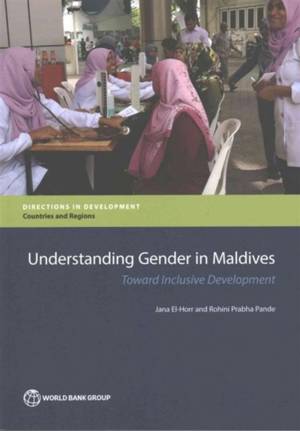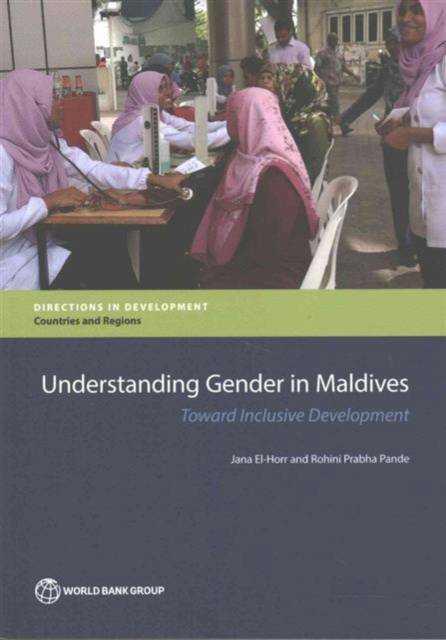
- Afhalen na 1 uur in een winkel met voorraad
- Gratis thuislevering in België vanaf € 30
- Ruim aanbod met 7 miljoen producten
- Afhalen na 1 uur in een winkel met voorraad
- Gratis thuislevering in België vanaf € 30
- Ruim aanbod met 7 miljoen producten
Zoeken
€ 34,95
+ 69 punten
Omschrijving
"Within the past decade the Maldives moved from poverty to middle-income status, introduced democracy, and was hailed as a Millennium Development Goal Plus country. Women face little discrimination in basic aspects of life such as primary education, health and survival +" unlike in much of South Asia. This economic and social progress has yet to be fully inclusive, however, and gender inequality endures, despite constitutional guarantees to the contrary. This is at least partly due to a shift in the nature of Islamic practice in the Maldives towards more rigidly patriarchal interpretations. Women's labor force participation is high, but limited to lower echelons of the economy. Women are slightly more likely than men to be unemployed. Despite gender-equal primary schooling, girls' access to tertiary and professional education is hampered by beliefs about girls' and women's mobility, and primacy of household roles over others. Within the home, women face challenges that men do not, such as high risks of domestic violence and little control over household assets. Finally, women have limited presence in politics and governance. Men struggle with different gendered situations. Unemployment is high among young men, who also increasingly are alienated from society and family. This alienation, combined with a lack of strong alternative social structures to replace the breakdown of traditional family structures that has accompanied Maldives' development trajectory, appear to be propelling young men towards greater social conservatism, participation in gangs, drug use and violence. Nonetheless, women are more disadvantaged in more realms of life than are men. Moreover, public support for gender equality and women's rights appears to be declining. These developments are worrying for the future of gender equality in the Maldives, as well as for a more inclusive development model that would offer opportunities to both men and women."
Specificaties
Betrokkenen
- Auteur(s):
- Uitgeverij:
Inhoud
- Aantal bladzijden:
- 78
- Taal:
- Engels
- Reeks:
Eigenschappen
- Productcode (EAN):
- 9781464808685
- Verschijningsdatum:
- 16/05/2016
- Uitvoering:
- Paperback
- Formaat:
- Trade paperback (VS)
- Afmetingen:
- 178 mm x 254 mm
- Gewicht:
- 154 g

Alleen bij Standaard Boekhandel
+ 69 punten op je klantenkaart van Standaard Boekhandel
Beoordelingen
We publiceren alleen reviews die voldoen aan de voorwaarden voor reviews. Bekijk onze voorwaarden voor reviews.











